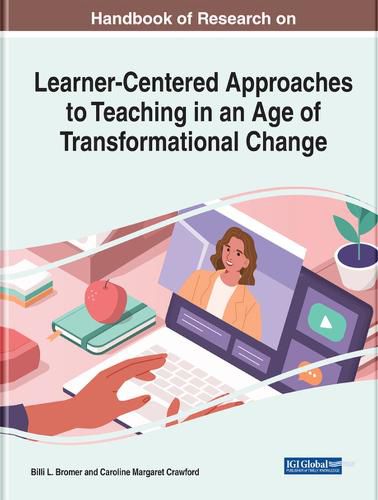Readings Newsletter
Become a Readings Member to make your shopping experience even easier.
Sign in or sign up for free!
You’re not far away from qualifying for FREE standard shipping within Australia
You’ve qualified for FREE standard shipping within Australia
The cart is loading…






This title is printed to order. This book may have been self-published. If so, we cannot guarantee the quality of the content. In the main most books will have gone through the editing process however some may not. We therefore suggest that you be aware of this before ordering this book. If in doubt check either the author or publisher’s details as we are unable to accept any returns unless they are faulty. Please contact us if you have any questions.
Institutions of education are in an age of transformational change in which learning has a wider scope of understanding and long-term impact than ever before. Those involved in teaching and learning require additional training and subject matter support towards developing a broader and more profoundly complex understanding of the learners affected by evolving sociological events and associated needs. More than ever, a broader understanding of the learner is needed, inclusive of a learner-centered approach to both teaching and learner cognitive engagement. The Handbook of Research on Learner-Centered Approaches to Teaching in an Age of Transformational Change examines the abundant transformational changes that have occurred and provide strategies to understand and address them. It draws from a wide range of experts and provides a burgeoning understanding of the effects of these rapidly-moving transformational changes that are occurring in the processes of teaching and learning. Exploring a wide range of issues such as community engagement scholarship, motivation-driven assignment design, and trauma-informed practices, this major reference work is an invaluable resource for educators of K-12 and higher education, educational faculty and administration, pre-service teachers, government officials, non-profit organizations, sociologists, libraries, researchers, and academicians.
$9.00 standard shipping within Australia
FREE standard shipping within Australia for orders over $100.00
Express & International shipping calculated at checkout
This title is printed to order. This book may have been self-published. If so, we cannot guarantee the quality of the content. In the main most books will have gone through the editing process however some may not. We therefore suggest that you be aware of this before ordering this book. If in doubt check either the author or publisher’s details as we are unable to accept any returns unless they are faulty. Please contact us if you have any questions.
Institutions of education are in an age of transformational change in which learning has a wider scope of understanding and long-term impact than ever before. Those involved in teaching and learning require additional training and subject matter support towards developing a broader and more profoundly complex understanding of the learners affected by evolving sociological events and associated needs. More than ever, a broader understanding of the learner is needed, inclusive of a learner-centered approach to both teaching and learner cognitive engagement. The Handbook of Research on Learner-Centered Approaches to Teaching in an Age of Transformational Change examines the abundant transformational changes that have occurred and provide strategies to understand and address them. It draws from a wide range of experts and provides a burgeoning understanding of the effects of these rapidly-moving transformational changes that are occurring in the processes of teaching and learning. Exploring a wide range of issues such as community engagement scholarship, motivation-driven assignment design, and trauma-informed practices, this major reference work is an invaluable resource for educators of K-12 and higher education, educational faculty and administration, pre-service teachers, government officials, non-profit organizations, sociologists, libraries, researchers, and academicians.